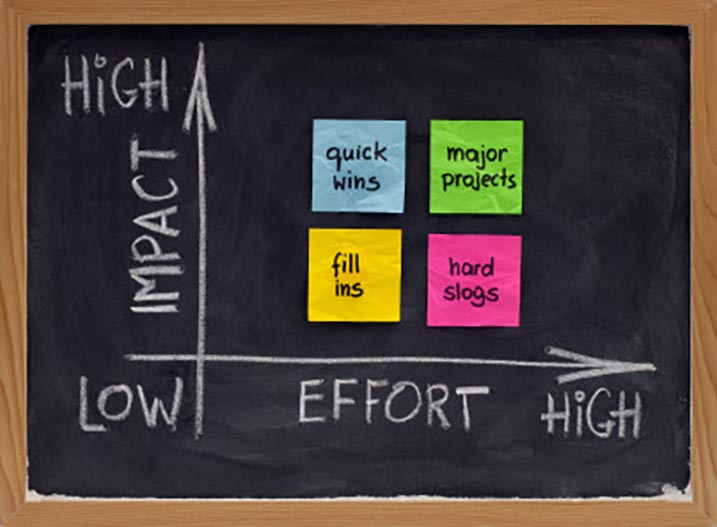What Inspires Me: Making An Impact

As a book author, analyst, and entrepreneur, I’m frequently asked where I get the ideas for writing & research, and also how I stay focused and in balance while running a firm. What inspires and keeps me motivated is that I love to have an impact, and it’s a great reward to see a connection between the work that I do.
For example, five years after writing Groundswell, people regularly approach me to say that the book had a huge impact on them. Some were inspired to make a change in their career while others shifted their organization’s strategy. Being able to connect with people, either in person or just through comments or @replies on Twitter is what sustains and inspires me.
And I need the inspiration because I find writing to be a painful process. An author friend of mine once described the process of writing a book as picking up a keyboard, bashing it against your head until blood pours out on the table. You stare at the blood until words form and you type those words into the computer. That pretty much describes the experience of writing for me — I pour my heart and soul into it and am drained by it. I love the craft of writing, but the
process to deepen and make that writing meaningful for my audience takes so much energy that I find it hard to pull away from the hubbub of every day work to find the mind-space to think and write.
And here’s my confession — I’m a horrible procrastinator (even this post is late). Knowing how difficult writing will be, I tend to put it off for as long as possible.
So how do I get motivated and inspired to do this? I’ve found that the following three things have helped me stay focused and motivated in the midst of every day chaos, and my hope is that they will help you find inspiration as well.
1) Tackle really audacious topics. I need to connect emotionally with the problems and pain points that are plaguing people and organizations, and focus on helping them create pragmatic solutions. That’s why almost all of my writing has action points, recommendations, and actionable steps. This is the Maximizer in me — if I’m to spend the time and energy on something, I’m going to make the most of it. For example, I’m currently conducting research on how large organizations create disruptive strategies — how does a large, slow-moving company become more adaptive, dynamic, resilient, and in the end, be disruptive if everything in their corporate DNA is to do exactly the opposite? I’m not sure what the answer is (that’s why it’s called research) but if I can get closer to the answer, the impact will be enormous. To find your motivation, take on the really tough projects and questions, the ones that seem nearly impossible to solve, and that have the risk of failure. Being safe isn’t very motivating, but being audacious can be inspiring.
2) Coordinate and protect your calendar. At Altimeter, analysts all have a common problem — we’re pulled in so many directions between clients, business development, and briefings that we don’t have time to write. When we each individually reserved writing time on our calendars, we’d inevitably be scheduled into meetings with each other or client teams. The solution: We declared two days a week to be meeting-free for all analysts. We found that unless we took research and writing seriously as a firm, investing and protecting that time, we’d never get it done. We try to put writing at the same level of importance as client time – we would never schedule over a client meeting and writing needed to have that same level of sanctity. I recently heard the CEO of Spanx Sara Blakely discuss her routine of setting aside time every day for what she calls “free thinking”. So set aside time in your calendar to think and be inspired, and make it a priority — or you’ll never get around to it.
3) Become more mindful. Having a great audacious topic, and a set writing time get me almost to the table. But I frequently find myself falling into the procrastination trap, avoiding and putting off things I don’t want to do until the last possible moment. The one thing I’ve found to be helpful in this area is to practice mindfulness. This is less about meditation (although I do find it helpful occasionally) and more about being aware and present enough in the moment to recognize that I’m falling into the avoidance trap. I’ve had to learn to be more mindful of my emotions and behaviors, and then to have the discipline to focus on my goal and motivation of my writing having an impact. The biggest step to becoming more mindful is blocking out every day distractions long enough to find that original kernel of inspiration. Some people benefit from a visual reminder — a picture next to your computer screen for example. At the start of my writing time, I set a special ring tone and alarm on my phone to remind me to get centered — and I take a few moments, a few deep breathes, to focus on the impact my writing will have.
That’s how I find my inspiration — I would love to hear how your experiences are similar or different, and of course, any suggestions that you may want to share as well.
Photo: ©iStockphoto.com/marekuliasz
